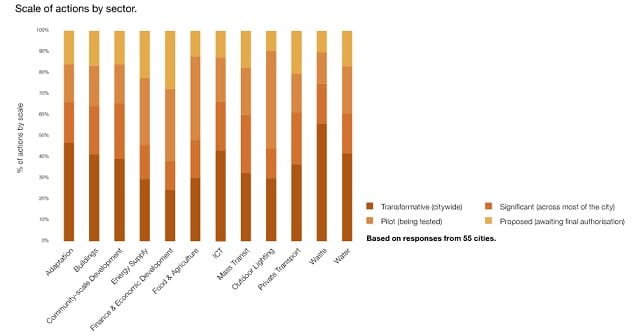World's megacities pick up pace on climate action

Leaders in the world’s largest cities almost universally recognize that climate change poses a “significant risk.” And they’re stepping up efforts to prepare for and minimize those risks in a number of ways.
Cities in the C40 Climate Leadership Group have doubled the number of climate-focused actions they’ve taken since 2011, with more than 8,000 initiatives now under way, according to a new report — “Climate Action in Megacities Volume 2.0” — released today in Johannesburg. Among the areas seeing the most action are bike-sharing programs (up from six to 36, an increase of 500 percent, between 2011 and 2013), bus rapid transit systems (more than doubled since 2011) and waste-to-energy development plans (one-third of city energy supply plans focus on waste-to-energy projects).
Ninety-eight percent of the cities contributing to the report acknowledge that adaptation efforts are critical for minimizing the risks of climate change.
The data gathered for this latest report is aimed at helping C40 cities build on the efforts they first reported in 2011.
” ‘Measurement for management’ has been a key tenet of C40, and one that will remain central to C40’s operations going forward,” said Mark Watts, C40 executive director. “Our data will inform the strategic direction of C40 programs and initiatives, and enable C40 cities to set targets, evaluate actions and access resources. This ability to target our efforts is critical, given the urgent need to reduce emissions and climate risks.”
The 63 cities in the C40 network have a total population of 600 million people and generate about 5 percent of the world’s greenhouse gas emissions.




